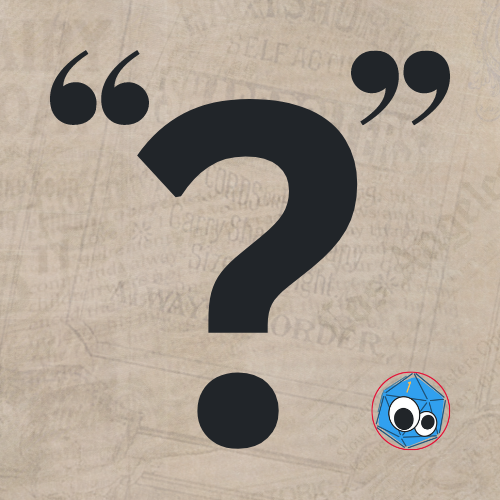
In many online discussions, people like to quote other figures. Broadly speaking, such quotes seem to fall into two categories: attribution and appeal to authority. While superficially similar, I see crucial differences beneath the surface.
Attribution
When I quote someone, my intent is usually to show that someone made a good argument on the topic at hand, and said it better than I can. I also strive to provide the reference link or source so interested readers can find the overall context.
Sometimes the person is famous. Usually, it is someone little known outside their own field, if they have any reputation whatsoever. Sometimes it is even someone with whom I share little agreement beyond the point at hand. None of this ancillary information has any bearing on an argument's validity, but I strive to show intellectual honesty. Give credit where credit is due, and help readers explore further if they wish.
Appeal to Authority
In contrast, I often see this version instead: "A famous guy said this thing, so it is true because a famous guy said it." The weight of the argument is in the name, not the content of the actual argument. This is an informal fallacy which has been known for centuries, if not millennia.
It is especially egregious if the fame of the name is in an unrelated field. A celebrity is probably not an authority on foreign policy or economics. A physicist is unlikely to have expertise in theology. A politician probably knows nothing whatsoever of life in the real world. It's not impossible, but one must always ask whether the citation is a courtesy, or just name-dropping as a substitute for reason.
BONUS: False Attribution
"You can't believe every quote you read on the internet." - Abraham Lincoln
I often find good quotes, but then fall down a rabbit hole of chains of references without ever reaching a definitive source. Sometimes a quote was misattributed. Sometimes someone just made it up. It's easier to share than it is to verify, so these can spread like wildfire.
With another contentious election year looming, not just in the US, but in many other countries around the world as well, expect more of this. You can help slow the spread, though. If it's a good quote, it's probably even better in context. If it's a bad quote, you can call it out or make corrections.
It's handy being a librarian, because I can also easily search old books with obscure references. You can try this, too. Visit your local library. Check WorldCat to see what is available globally, and then ask whether your local librarians can request an inter-library loan on your behalf. I can't order items from New Zealand or South Africa, but I can pull from across most of Washington, Oregon, Idaho, and Montana when my patrons need something specific. For context, this is a greater land mass than the entire island of Great Britain.
Pessimistic Forecasting
We probably had a golden age of information availability between about 2000 and 2020. This was after most traditional media was made available online simultaneously, but before deep fakes and AI started to take over. Independent online journalism started to challenge the mainstream narrative, and news often broke through social media and blogs rather than corporate newsrooms.
We still had to watch out for photoshops, wiki vandals, trolls, sensationalist yellow journalism, and the like, but there was usually a reasonable way to verify stuff. I don't know how long that will last, and COVID revealed a lot of authoritarian censorship as governments colluded with corporations to quell dissent.
Here on Hive, we can easily embed links to source materials, but legacy social media is especially full of people who drop quote images as if they constitute discussion or refutation. Our blockchain might be an example of solutions waiting for the masses to see the problem. Here, everything is stored with a timestamp on a decentralized ledger. We know who wrote what, and when, with extreme accuracy. We call it "web 3.0," and if it does achieve mass adoption, it might solve a lot of these issues of veracity. Meanwhile, remember to be skeptical.
Image created in Canva.

Posted Using InLeo Alpha
So true. But don't go revealing this secret to them, they surely won't like it very much.
In my experience, most of the quotes on the internet are fake. My default attitude when I hear a quote is one of suspicion.
The argument to authority is very weak... as Thomas Aquinas said. ;)
Oh... I don't know if it's because of my internet but... the image/gif doesn't load.
Cheers!
It's a picture of a goat, captioned, "Oh...I see what you did there. You have been awarded the Squinty Goat."
Sometimes I feel the authority didn't care about people they are passing the authority to. All they want is for the authority to be exercised
Authority can be so crazy that the ones giving the authority won’t care about the plight of those who they are giving the authority to
It is really crazy
Authority most times can be misuse and that is why we actually need to be very careful the type of authority we give people